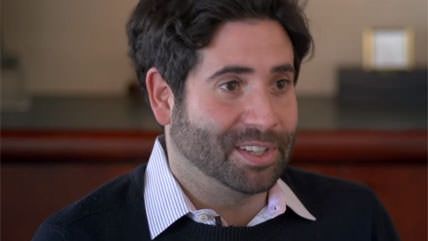The Feds vs. Craig Zucker
Regulators pursue a vendetta against the creator of Buckyballs.

In 2009 Buckyballs, a desk toy comprised of tiny, powerful magnets, started flying off the shelves and into the shopping baskets of fidgety-handed customers. Serial entrepreneur Craig Zucker, the product's creator, saw it reach $10 million in sales that year. By 2009 Maxfield & Oberton, the company Zucker co-founded, had grown its distribution network to 5,000 stores. Two years later, the mini-magnets were still gaining market share, and People named them one of the five hottest trends of 2011.
Today Buckyballs are a sad chapter in the history of consumer product regulation. The federal Consumer Product Safety Commission (CPSC) drove Maxfield & Oberton out of business on shaky grounds. Now the agency is targeting Zucker himself in what appears to be retaliation for speaking out about the case.
Maxfield & Oberton's troubles started in July 2012, when the CPSC began legal proceedings to ban and recall Buckyballs on the grounds that the toy was dangerous for children. If swallowed, the magnets can cause internal bleeding because they attract each other when lodged in a person's bowels or intestinal tract. But banning the product was "statistically ridiculous," as a July 2012 report in The Huffington Post explained. There were 22 reported incidents of ingested Buckyballs from March 2009 through October 2011, or one for every 100,000 sets sold. That makes the product orders of magnitude less risky than dogs, tennis, skateboarding, and poisonous household chemicals. Furthermore, Buckyballs were clearly labeled, "Keep Away From All Children."
Determined to drive the product off the market, the CPSC started reaching out to Maxfield & Oberton's retail partners, including Brookstone and Urban Outfitters, requesting that they stop selling the toys. In what the company described as "a last-ditch effort to regain CPSC's favor and to save its business," Maxfield & Oberton offered to expand its safety program by putting more warnings on the product, distributing a childproof case, and giving Buckyballs a bitter flavor to dissuade kids from putting them in their mouths. The day after the company submitted this plan, the CPSC filed an administrative complaint seeking a total recall of the product.
Rather than suck up to regulators in the hope that they might spare his company, Zucker went on a publicity tour, appearing on national TV and radio to defend his product and speak out against the CPSC's bullying tactics. On its website, Maxfield & Oberton encouraged readers to give the CPSC Chairwoman Inez Tenenbaum a call on her "psychic hotline"-a reference to the agency's claim that it reviewed the company's corrective action plan in time to release its administrative complaint less than 24 hours later. In December 2012, with sales plummeting and legal fees mounting, Zucker gave up and dissolved Maxfield & Oberton.
A couple of months later, the CPSC added Craig Zucker to its complaint, holding him personally liable for the cost of recalling Buckyballs. If the CPSC has its way, Zucker will have to personally reimburse retailers for their costs, notify all distributors and local public health officials of the recall, and submit monthly progress reports to the commission. (The CPSC initially estimated the cost of the recall at $57 million, but an agency spokesperson says the actual cost would be significantly less.)
The case has drawn widespread attention in legal circles because it is extremely unusual for the CPSC to hold a former officer personally responsible for the actions of a defunct corporation. Zucker opposed the CPSC's motion, and three trade groups-the National Association of Manufacturers, the National Retail Federation, and the Retail Industry Leaders Association-filed a joint brief on his behalf. But an administrative law judge ruled that the CPSC's complaint against Zucker can move forward. Although it remains to be seen whether the agency "will adopt this approach in other cases," according to a May 2013 memo from the law firm Gibson Dunn, "at a minimum, this demonstrates just how far the CPSC is willing to push the envelope."
In November 2013, with the pro bono backing of the nonprofit government accountability group Cause of Action, Zucker sued the CPSC for what he calls its "unprecedented regulatory overreach." The suit alleges that the CPSC's actions are aimed at punishing him for speaking out against the agency. In an emailed statement, CPSC spokesperson Scott Wolfson says "CPSC staff filed this case in order to prevent young children, tweens, and teens from suffering serious injuries," adding that the agency "is using enforcement, education, and rulemaking to address a serious and hidden hazard with an entire product line."
Neither case will be resolved anytime soon. In the meantime, Zucker has launched a new line of larger, less ingestible magnets called Liberty Balls, which he is selling to help cover his personal legal fees.


Show Comments (15)